-

Oct
26
Interpretive Summary: FDA guidance regarding antimicrobial drugs in livestock open for public comments
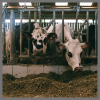
The United States Food and Drug Administration (FDA) has published draft guidance for defining the appropriate duration of use in antibiotics used in the feed of food-producing animals and is seeking public comment. The guidance provides information to sponsors of certain antimicrobial animal drug products who are interested in voluntarily establishing appropriately defined durations of therapeutic administration to food-producing animals where none currently exist.
Read more
-

Oct
26
Interpretive Summary: Over 27 million dollars given to underserved and veteran farmers
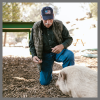
The United States Department of Agriculture (USDA) has announced over $27 million in grants to underserved and veteran farmers, ranchers, and foresters. The funding will provide training, outreach, and technical assistance to help them own and operate successful farms, ranches, and forest lands.
Read more
-

Oct
26
Interpretive Summary: The American Farmers Feed the World Act of 2023 is introduced
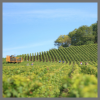
The American Farmers Feed the World Act of 2023 was introduced to ensure that United States-grown commodities remain the cornerstone of international food aid. Currently, the United States Agency for International Development’s Food for Peace Program funds much of the nation's food aid. Under the terms of the bill, the program would be required to spend at least half its funds on purchasing and distributing American commodities.
Read more
-

Oct
26
Interpretive Summary: The Butcher Block Act is introduced
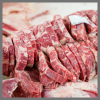
The Butcher Block Act was recently introduced into the Senate by Senators Michael Bennet (D-CO) and Jerry Moran (R-KS) to increase competition and capacity in the meat processing industry. The Butcher Block Act would create grant and loan opportunities through the United States Department of Agriculture (USDA) to enable small and mid-sized meat processing facilities to expand their operations.
Read more
-

Oct
26
Interpretive Summary: USDA announces awards for dairy businesses
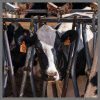
The United States Department of Agriculture (USDA) announced an investment of $23 million to support dairy businesses and producers under the Dairy Business Innovation Initiatives (DBI) grant program. The initiatives support small and mid-sized dairy businesses in the development, production, marketing, and distribution of dairy products.
Read more
-

Oct
26
Interpretive Summary: USDA expands school meal eligibility

More students will have access to school meals due to the United States Department of Agriculture’s (USDA’s) recent announcement that expands the availability of the Community Eligibility Provision (CEP) program. The announcement means that an estimated 3,000 more school districts in high-need areas will now have the option to serve breakfast and lunch to all students at no cost.
Read more
-

Oct
26
Interpretive Summary: USDA increases access to school meals as well as new partnership

The United States Department of Agriculture (USDA) has announced a new partnership with the Urban School Food Alliance to help schools continue to invest in nutritious school meals. The over $60 million in grants will provide training and tools to school districts that will help them purchase high-quality foods while keeping costs low. In recent years schools have faced challenges in obtaining healthy foods consistently, efficiently, and effectively.
Read more
-

Oct
26
Interpretive Summary: USDA invests in programs to reduce food waste
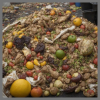
The United States Department of Agriculture (USDA) has announced funding to expand efforts to prevent and reduce food loss and waste. The investment, funded under the American Rescue Plan Act (ARPA), is part of a joint agency initiative between USDA’s National Institute of Food and Agriculture (NIFA) and USDA’s Office of the Chief Economist (OCE). According to the USDA, over one-third of all available food goes uneaten through loss or waste, in the United States.
Read more
-

Oct
19
Interpretive Summary: Supplementation with rumen-inert fat in the growing phase altered adipogenic gene expression and the size and number of adipocytes in Hanwoo steers
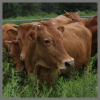
Rumen inert fat (RIF) is a type of fat supplement that is used in the diets of beef cattle as early as 6 mo of age in calves and continues through the finishing period to improve the dietary energy density which can be used by the animal to deposit more lipid in the muscle tissue. However, for Hanwoo beef cattle, the precise time of RIF supplementation has not yet been determined.
Read more
-

Oct
19
Interpretive Summary: Effects of polyunsaturated fatty acid supplementation on plasma and follicular fluid resolvin D1 concentration and mRNA abundance in granulosa cells in ewes
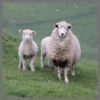
The aim of this experiment was to evaluate the effects of increasing dietary omega-3 (n-3) polyunsaturated fatty acid (PUFA) supplementation on plasma and follicular fluid resolvin D1 (RvD1) concentration, and the mRNA expression of genes related to RvD1 synthesis, inflammatory response, oxidative stress, reproductive hormone receptors and production, and free fatty acid receptors in ewes.
Read more
-

Oct
19
Interpretive Summary: Environmental impact potential of insect production chains for food and feed in Europe
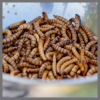
The current food systems are facing several sustainability problems. One major issue is the environmental impact of food production, which contributes to climate change, deforestation, and biodiversity loss (Poore and Nemecek, 2018).
Read more
-

Oct
19
Interpretive Summary: Are insects a solution for feeding ruminants? Legislation, scientific evidence, and future challenges
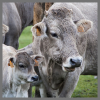
The growing interest of the scientific community on the inclusion of insect-derived products in ruminant diets is leading to a boost of research papers on this topic. Even though in absolute terms the increase in the number of published papers is limited—because limited is also the literature on this topic...
Read more
-

Oct
19
Interpretive Summary: Development of genetically improved tropical-adapted dairy cattle
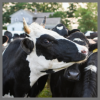
According to recent estimates, about 80% of cattle reside in tropical or subtropical regions (Cooke et al., 2020a). The number of farmers and consumers, as well as overall production (e.g., annual milk production), is also greater in the tropics. However, cattle productivity in these regions is underwhelming compared with most temperate zones characterized by high-input farming practices and yields correlated with the fitness of the breeds to their system.
Read more
-

Oct
19
Interpretive Summary: Breeds and lines of sheep suitable for production in challenging environments

The adaptability and success of sheep are confirmed by the fact that they are the world’s most diverse mammalian livestock species, contributing some 25% to the global number of farm animal breeds (Cottle, 2010). The latter author showed that the ovine species is indeed globally successful and present in farming landscapes throughout the world, ranging from arid to high rainfall areas and from sea level to the highest mountains.
Read more
-

Oct
12
Interpretive Summary: Rumen and cecum bacteria of beef cattle that differ in feed efficiency fed a forage diet
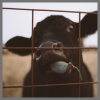
Feed is one of the greatest costs associated with beef production. Modifying the efficiency that feed is used offers a potential mechanism to improve production efficiency.
Read more
-

Oct
12
Interpretive Summary: Effect of increasing concentration of ergot alkaloids in the diet of feedlot cattle: performance, welfare, and health parameters
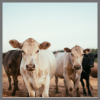
Ergot alkaloids (EA) are produced by a parasitic fungus (Claviceps purpurea) during the cereal grain growth cycle. Feeding cereal grain containing EA to beef cattle can cause constriction of blood vessels, hyperthermia, gangrene of extremities (ears, hoof, and tail), reduced feed intake and growth, and even death. Feed cleaning and processing technologies have been developed to remove EA from the human food chain, thus diverting contaminated feed for livestock use.
Read more
-

Oct
12
Interpretive Summary: Effects of wildfire smoke PM2.5 on indicators of inflammation, health, and metabolism of preweaned Holstein heifers

Wildfires contribute to fine particulate matter (PM2.5) pollution throughout the United States. Wildfire-PM2.5 exposure negatively affects human health and dairy cow production; however, the effects on calves are not known.
Read more
-

Oct
12
Interpretive Summary: Genetic parameters for pulmonary arterial pressure, yearling performance, and carcass ultrasound traits in Angus cattle
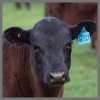
Beef cattle residing >1,500 m are subject to reduced atmospheric oxygen levels when compared with beef cattle at lower elevations which may result in hypoxia-induced pulmonary hypertension and right-side heart failure. Breeders use pulmonary arterial pressures to identify animals at risk of right-side heart failure and to select breeding animals that are less susceptible to the problem.
Read more
-

Oct
12
Interpretive Summary: Changes in gut microbiota and short-chain fatty acids are involved in the process of canine obesity after neutering

Neutering contributes to canine obesity risk. In this study, obesity rate of 60% at 21 mo after neutering was observed. Obese dogs had greater serum triglyceride, total cholesterol, high-density lipoprotein cholesterol, and leptin levels and lower adiponectin level than ideal weight dogs.
Read more
-

Oct
12
Interpretive Summary: Efficient establishment of an optimized culture condition for cashmere goat primary hair follicle stem cells
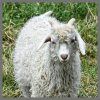
Hair follicle stem cells (HFSCs) are indispensable for skin repair, hair growth, development, and regeneration. One major challenge in primary cell culture is achieving efficient growth while maintaining stemness to achieve a high yield.
Read more
 OctInterpretive Summary: FDA guidance regarding antimicrobial drugs in livestock open for public comments
OctInterpretive Summary: FDA guidance regarding antimicrobial drugs in livestock open for public comments The United States Food and Drug Administration (FDA) has published draft guidance for defining the appropriate duration of use in antibiotics used in the feed of food-producing animals and is seeking public comment. The guidance provides information to sponsors of certain antimicrobial animal drug products who are interested in voluntarily establishing appropriately defined durations of therapeutic administration to food-producing animals where none currently exist.
The United States Food and Drug Administration (FDA) has published draft guidance for defining the appropriate duration of use in antibiotics used in the feed of food-producing animals and is seeking public comment. The guidance provides information to sponsors of certain antimicrobial animal drug products who are interested in voluntarily establishing appropriately defined durations of therapeutic administration to food-producing animals where none currently exist. OctInterpretive Summary: Over 27 million dollars given to underserved and veteran farmers
OctInterpretive Summary: Over 27 million dollars given to underserved and veteran farmers The United States Department of Agriculture (USDA) has announced over $27 million in grants to underserved and veteran farmers, ranchers, and foresters. The funding will provide training, outreach, and technical assistance to help them own and operate successful farms, ranches, and forest lands.
The United States Department of Agriculture (USDA) has announced over $27 million in grants to underserved and veteran farmers, ranchers, and foresters. The funding will provide training, outreach, and technical assistance to help them own and operate successful farms, ranches, and forest lands. OctInterpretive Summary: The American Farmers Feed the World Act of 2023 is introduced
OctInterpretive Summary: The American Farmers Feed the World Act of 2023 is introduced The American Farmers Feed the World Act of 2023 was introduced to ensure that United States-grown commodities remain the cornerstone of international food aid. Currently, the United States Agency for International Development’s Food for Peace Program funds much of the nation's food aid. Under the terms of the bill, the program would be required to spend at least half its funds on purchasing and distributing American commodities.
The American Farmers Feed the World Act of 2023 was introduced to ensure that United States-grown commodities remain the cornerstone of international food aid. Currently, the United States Agency for International Development’s Food for Peace Program funds much of the nation's food aid. Under the terms of the bill, the program would be required to spend at least half its funds on purchasing and distributing American commodities. OctInterpretive Summary: The Butcher Block Act is introduced
OctInterpretive Summary: The Butcher Block Act is introduced The Butcher Block Act was recently introduced into the Senate by Senators Michael Bennet (D-CO) and Jerry Moran (R-KS) to increase competition and capacity in the meat processing industry. The Butcher Block Act would create grant and loan opportunities through the United States Department of Agriculture (USDA) to enable small and mid-sized meat processing facilities to expand their operations.
The Butcher Block Act was recently introduced into the Senate by Senators Michael Bennet (D-CO) and Jerry Moran (R-KS) to increase competition and capacity in the meat processing industry. The Butcher Block Act would create grant and loan opportunities through the United States Department of Agriculture (USDA) to enable small and mid-sized meat processing facilities to expand their operations. OctInterpretive Summary: USDA announces awards for dairy businesses
OctInterpretive Summary: USDA announces awards for dairy businesses The United States Department of Agriculture (USDA) announced an investment of $23 million to support dairy businesses and producers under the Dairy Business Innovation Initiatives (DBI) grant program. The initiatives support small and mid-sized dairy businesses in the development, production, marketing, and distribution of dairy products.
The United States Department of Agriculture (USDA) announced an investment of $23 million to support dairy businesses and producers under the Dairy Business Innovation Initiatives (DBI) grant program. The initiatives support small and mid-sized dairy businesses in the development, production, marketing, and distribution of dairy products. OctInterpretive Summary: USDA expands school meal eligibility
OctInterpretive Summary: USDA expands school meal eligibility More students will have access to school meals due to the United States Department of Agriculture’s (USDA’s) recent announcement that expands the availability of the Community Eligibility Provision (CEP) program. The announcement means that an estimated 3,000 more school districts in high-need areas will now have the option to serve breakfast and lunch to all students at no cost.
More students will have access to school meals due to the United States Department of Agriculture’s (USDA’s) recent announcement that expands the availability of the Community Eligibility Provision (CEP) program. The announcement means that an estimated 3,000 more school districts in high-need areas will now have the option to serve breakfast and lunch to all students at no cost. OctInterpretive Summary: USDA increases access to school meals as well as new partnership
OctInterpretive Summary: USDA increases access to school meals as well as new partnership The United States Department of Agriculture (USDA) has announced a new partnership with the Urban School Food Alliance to help schools continue to invest in nutritious school meals. The over $60 million in grants will provide training and tools to school districts that will help them purchase high-quality foods while keeping costs low. In recent years schools have faced challenges in obtaining healthy foods consistently, efficiently, and effectively.
The United States Department of Agriculture (USDA) has announced a new partnership with the Urban School Food Alliance to help schools continue to invest in nutritious school meals. The over $60 million in grants will provide training and tools to school districts that will help them purchase high-quality foods while keeping costs low. In recent years schools have faced challenges in obtaining healthy foods consistently, efficiently, and effectively. OctInterpretive Summary: USDA invests in programs to reduce food waste
OctInterpretive Summary: USDA invests in programs to reduce food waste The United States Department of Agriculture (USDA) has announced funding to expand efforts to prevent and reduce food loss and waste. The investment, funded under the American Rescue Plan Act (ARPA), is part of a joint agency initiative between USDA’s National Institute of Food and Agriculture (NIFA) and USDA’s Office of the Chief Economist (OCE). According to the USDA, over one-third of all available food goes uneaten through loss or waste, in the United States.
The United States Department of Agriculture (USDA) has announced funding to expand efforts to prevent and reduce food loss and waste. The investment, funded under the American Rescue Plan Act (ARPA), is part of a joint agency initiative between USDA’s National Institute of Food and Agriculture (NIFA) and USDA’s Office of the Chief Economist (OCE). According to the USDA, over one-third of all available food goes uneaten through loss or waste, in the United States. OctInterpretive Summary: Supplementation with rumen-inert fat in the growing phase altered adipogenic gene expression and the size and number of adipocytes in Hanwoo steers
OctInterpretive Summary: Supplementation with rumen-inert fat in the growing phase altered adipogenic gene expression and the size and number of adipocytes in Hanwoo steers Rumen inert fat (RIF) is a type of fat supplement that is used in the diets of beef cattle as early as 6 mo of age in calves and continues through the finishing period to improve the dietary energy density which can be used by the animal to deposit more lipid in the muscle tissue. However, for Hanwoo beef cattle, the precise time of RIF supplementation has not yet been determined.
Rumen inert fat (RIF) is a type of fat supplement that is used in the diets of beef cattle as early as 6 mo of age in calves and continues through the finishing period to improve the dietary energy density which can be used by the animal to deposit more lipid in the muscle tissue. However, for Hanwoo beef cattle, the precise time of RIF supplementation has not yet been determined. OctInterpretive Summary: Effects of polyunsaturated fatty acid supplementation on plasma and follicular fluid resolvin D1 concentration and mRNA abundance in granulosa cells in ewes
OctInterpretive Summary: Effects of polyunsaturated fatty acid supplementation on plasma and follicular fluid resolvin D1 concentration and mRNA abundance in granulosa cells in ewes The aim of this experiment was to evaluate the effects of increasing dietary omega-3 (n-3) polyunsaturated fatty acid (PUFA) supplementation on plasma and follicular fluid resolvin D1 (RvD1) concentration, and the mRNA expression of genes related to RvD1 synthesis, inflammatory response, oxidative stress, reproductive hormone receptors and production, and free fatty acid receptors in ewes.
The aim of this experiment was to evaluate the effects of increasing dietary omega-3 (n-3) polyunsaturated fatty acid (PUFA) supplementation on plasma and follicular fluid resolvin D1 (RvD1) concentration, and the mRNA expression of genes related to RvD1 synthesis, inflammatory response, oxidative stress, reproductive hormone receptors and production, and free fatty acid receptors in ewes. OctInterpretive Summary: Environmental impact potential of insect production chains for food and feed in Europe
OctInterpretive Summary: Environmental impact potential of insect production chains for food and feed in Europe The current food systems are facing several sustainability problems. One major issue is the environmental impact of food production, which contributes to climate change, deforestation, and biodiversity loss (Poore and Nemecek, 2018).
The current food systems are facing several sustainability problems. One major issue is the environmental impact of food production, which contributes to climate change, deforestation, and biodiversity loss (Poore and Nemecek, 2018). OctInterpretive Summary: Are insects a solution for feeding ruminants? Legislation, scientific evidence, and future challenges
OctInterpretive Summary: Are insects a solution for feeding ruminants? Legislation, scientific evidence, and future challenges The growing interest of the scientific community on the inclusion of insect-derived products in ruminant diets is leading to a boost of research papers on this topic. Even though in absolute terms the increase in the number of published papers is limited—because limited is also the literature on this topic...
The growing interest of the scientific community on the inclusion of insect-derived products in ruminant diets is leading to a boost of research papers on this topic. Even though in absolute terms the increase in the number of published papers is limited—because limited is also the literature on this topic... OctInterpretive Summary: Development of genetically improved tropical-adapted dairy cattle
OctInterpretive Summary: Development of genetically improved tropical-adapted dairy cattle According to recent estimates, about 80% of cattle reside in tropical or subtropical regions (Cooke et al., 2020a). The number of farmers and consumers, as well as overall production (e.g., annual milk production), is also greater in the tropics. However, cattle productivity in these regions is underwhelming compared with most temperate zones characterized by high-input farming practices and yields correlated with the fitness of the breeds to their system.
According to recent estimates, about 80% of cattle reside in tropical or subtropical regions (Cooke et al., 2020a). The number of farmers and consumers, as well as overall production (e.g., annual milk production), is also greater in the tropics. However, cattle productivity in these regions is underwhelming compared with most temperate zones characterized by high-input farming practices and yields correlated with the fitness of the breeds to their system. OctInterpretive Summary: Breeds and lines of sheep suitable for production in challenging environments
OctInterpretive Summary: Breeds and lines of sheep suitable for production in challenging environments The adaptability and success of sheep are confirmed by the fact that they are the world’s most diverse mammalian livestock species, contributing some 25% to the global number of farm animal breeds (Cottle, 2010). The latter author showed that the ovine species is indeed globally successful and present in farming landscapes throughout the world, ranging from arid to high rainfall areas and from sea level to the highest mountains.
The adaptability and success of sheep are confirmed by the fact that they are the world’s most diverse mammalian livestock species, contributing some 25% to the global number of farm animal breeds (Cottle, 2010). The latter author showed that the ovine species is indeed globally successful and present in farming landscapes throughout the world, ranging from arid to high rainfall areas and from sea level to the highest mountains. OctInterpretive Summary: Rumen and cecum bacteria of beef cattle that differ in feed efficiency fed a forage diet
OctInterpretive Summary: Rumen and cecum bacteria of beef cattle that differ in feed efficiency fed a forage diet Feed is one of the greatest costs associated with beef production. Modifying the efficiency that feed is used offers a potential mechanism to improve production efficiency.
Feed is one of the greatest costs associated with beef production. Modifying the efficiency that feed is used offers a potential mechanism to improve production efficiency. OctInterpretive Summary: Effect of increasing concentration of ergot alkaloids in the diet of feedlot cattle: performance, welfare, and health parameters
OctInterpretive Summary: Effect of increasing concentration of ergot alkaloids in the diet of feedlot cattle: performance, welfare, and health parameters Ergot alkaloids (EA) are produced by a parasitic fungus (Claviceps purpurea) during the cereal grain growth cycle. Feeding cereal grain containing EA to beef cattle can cause constriction of blood vessels, hyperthermia, gangrene of extremities (ears, hoof, and tail), reduced feed intake and growth, and even death. Feed cleaning and processing technologies have been developed to remove EA from the human food chain, thus diverting contaminated feed for livestock use.
Ergot alkaloids (EA) are produced by a parasitic fungus (Claviceps purpurea) during the cereal grain growth cycle. Feeding cereal grain containing EA to beef cattle can cause constriction of blood vessels, hyperthermia, gangrene of extremities (ears, hoof, and tail), reduced feed intake and growth, and even death. Feed cleaning and processing technologies have been developed to remove EA from the human food chain, thus diverting contaminated feed for livestock use. OctInterpretive Summary: Effects of wildfire smoke PM2.5 on indicators of inflammation, health, and metabolism of preweaned Holstein heifers
OctInterpretive Summary: Effects of wildfire smoke PM2.5 on indicators of inflammation, health, and metabolism of preweaned Holstein heifers Wildfires contribute to fine particulate matter (PM2.5) pollution throughout the United States. Wildfire-PM2.5 exposure negatively affects human health and dairy cow production; however, the effects on calves are not known.
Wildfires contribute to fine particulate matter (PM2.5) pollution throughout the United States. Wildfire-PM2.5 exposure negatively affects human health and dairy cow production; however, the effects on calves are not known. OctInterpretive Summary: Genetic parameters for pulmonary arterial pressure, yearling performance, and carcass ultrasound traits in Angus cattle
OctInterpretive Summary: Genetic parameters for pulmonary arterial pressure, yearling performance, and carcass ultrasound traits in Angus cattle Beef cattle residing >1,500 m are subject to reduced atmospheric oxygen levels when compared with beef cattle at lower elevations which may result in hypoxia-induced pulmonary hypertension and right-side heart failure. Breeders use pulmonary arterial pressures to identify animals at risk of right-side heart failure and to select breeding animals that are less susceptible to the problem.
Beef cattle residing >1,500 m are subject to reduced atmospheric oxygen levels when compared with beef cattle at lower elevations which may result in hypoxia-induced pulmonary hypertension and right-side heart failure. Breeders use pulmonary arterial pressures to identify animals at risk of right-side heart failure and to select breeding animals that are less susceptible to the problem. OctInterpretive Summary: Changes in gut microbiota and short-chain fatty acids are involved in the process of canine obesity after neutering
OctInterpretive Summary: Changes in gut microbiota and short-chain fatty acids are involved in the process of canine obesity after neutering Neutering contributes to canine obesity risk. In this study, obesity rate of 60% at 21 mo after neutering was observed. Obese dogs had greater serum triglyceride, total cholesterol, high-density lipoprotein cholesterol, and leptin levels and lower adiponectin level than ideal weight dogs.
Neutering contributes to canine obesity risk. In this study, obesity rate of 60% at 21 mo after neutering was observed. Obese dogs had greater serum triglyceride, total cholesterol, high-density lipoprotein cholesterol, and leptin levels and lower adiponectin level than ideal weight dogs. OctInterpretive Summary: Efficient establishment of an optimized culture condition for cashmere goat primary hair follicle stem cells
OctInterpretive Summary: Efficient establishment of an optimized culture condition for cashmere goat primary hair follicle stem cells Hair follicle stem cells (HFSCs) are indispensable for skin repair, hair growth, development, and regeneration. One major challenge in primary cell culture is achieving efficient growth while maintaining stemness to achieve a high yield.
Hair follicle stem cells (HFSCs) are indispensable for skin repair, hair growth, development, and regeneration. One major challenge in primary cell culture is achieving efficient growth while maintaining stemness to achieve a high yield.



